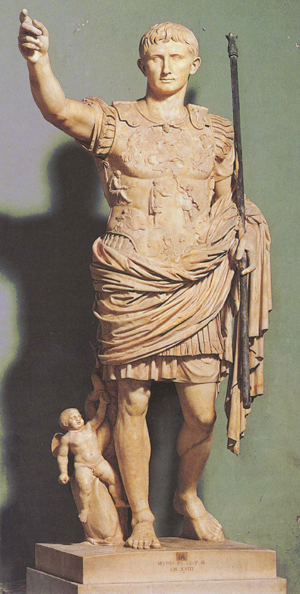As the honorific inscriptions said of the birthday of the Roman Emperor Augustus, so said after them all Christians of the natal day of  Jesus:
Jesus:
“This day has given the earth an entirely new The New aspect.
The world would have gone to destruction Era Two Thousand had there not streamed forth from him who is now born a common blessing.
“Rightly does he judge who recognises in this birth-day the beginning of life and of all the powers of life; now is that time ended when men pitied themselves for being born.
“From no other day does the individual or the community receive such benefit as from this natal day, full of blessing to all.
“The Providence which rules over all has filled this man with such gifts for the salvation of the world as designate him as Saviour for us and for the coming generations; of wars he will make an end, and establish all things worthily.
“By his appearing are the hopes of our forefathers fulfilled; not only has he surpassed the good deeds of earlier time, but it is impossible that one greater than he can ever appear.
“The birth-day of God has brought to the world glad tidings that are bound up in him.
“From his birth-day a new era begins.”
So runs the most perfect of a number of inscriptions lately found in Asia Minor and set up to commemorate the introduction of the Julian Calendar by the Emperor Augustus. It bears a date corresponding to our B.C. 9 (See Harnack’s article in Die christliche Welt, Dec. 1899).
Fragments of a Faith Forgotten: Some Short Sketches Among the Gnostics By George Robert Stow Mead

Moe is the founder of GnosticWarrior.com. He is a father, husband, author, martial arts black belt, and an expert in Gnosticism, the occult, and esotericism.


![How during the reign of Gratian, Maximus, being created Emperor in Britain, returned into Gaul with a mighty army [377 AD] | Book 1 | Chapter 8 How during the reign of Gratian, Maximus, being created Emperor in Britain, returned into Gaul with a mighty army [377 AD] | Book 1 | Chapter 8](https://www.gnosticwarrior.com/wp-content/plugins/contextual-related-posts/default.png)




